Recently I have written and posted about collectible antique Glass Paperweights, Target Balls, Marbles, Witch Balls, Fly Traps, Glass Fishing Floats and Christmas Ornaments and now would like to discuss one of my favorite areas, Lightning Rod Balls. The common denominator of course, is the geometric ‘circle’, as all of these collecting objects are primarily round. Hopefully sometime soon I can do a post on Fire Grenades.
Most of my good Lightning Rod Balls (LRB’s) were purchased in 2002 from a fellow I met online and thru eBay named Bob Overfield (visit LRBMAN.com) who is a major name, collector and dealer in this area. If you like Lightning Rod Balls and Vanes, it is also essential to have a copy of The Complete Book of Lightning Rod Balls by Rod Krupka and Mike Bruner. This is the definitive book of the hobby, Krupka and Bruner lovingly and thoroughly researched and compiled the extensive information in this book. It is both a price guide and a history book. Soft cover 8 1/2″ x 11 with 150 pages. This book is out of print but you can find copies if you search online.
In the 19th century, the lightning rod became a decorative motif. Lightning rods were embellished with ornamental glass balls that are now prized by collectors. The ornamental appeal of these glass balls has been used in weather vanes. The main purpose of these balls, however, is to provide evidence of a lightning strike by shattering or falling off. If after a storm, a ball is discovered missing or broken, the property owner should then check the building, rod, and grounding wire for damage.
According to the Iowa Barn Association, lightning rod balls have long been part of the American rural landscape. Some were made as early as 1840. They were originally sold as ornaments for lightning rods and are found in a wide range of shapes and colors. Made of glass or ceramic, they had no practical use, but added a decorative touch to the rods.
The balls were usually about four and a half inches in diameter. Glass balls were typically white and blue milk glass. Clear glass ones have often turned to amethyst from sun exposure to impurities in the glass.
There are some 34 shapes or styles of lightning rod balls. The balls were sold by salesmen going from farm to farm in horse drawn wagons from 1870 until the Great Depression closed businesses.
Read Further: LRB’s! – Sullivan Auctioneers – The Jim & Linda Baier Collection
Read Further: More Lightning Rod Ball and Weathervane pictures from the Baier Collection
I have posted a few pictures from our collection…
QUILT RAISED
Offered by the St. Louis Lightning Protection Company of St. Louis, Missouri. Established in 1866 and incorporated in 1902. Raised quilt has 1 1/2″ collars and often original caps embossed KRETZER BRAND TRADE MARK.
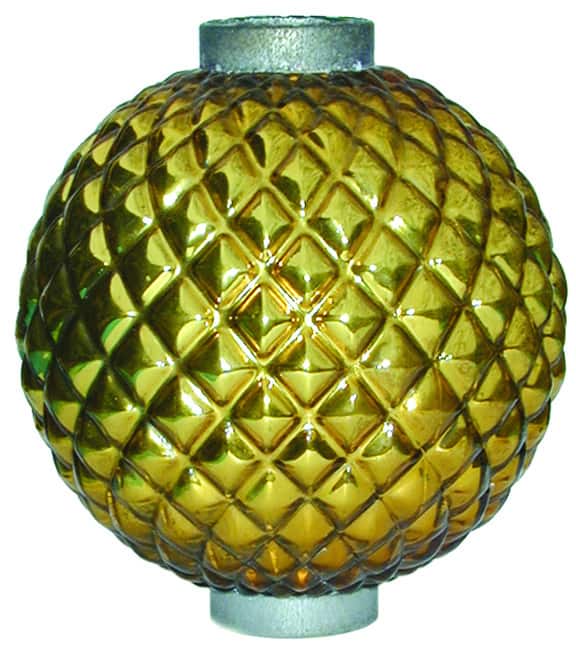
Quilt Raised - Gold Merc, almost perfect condition with original Kretzer end caps - Meyer Collection
QUILT FLAT
Company pattern of the George E. Thompson Lightning Rod Co. in Owatonna, Minnesota. Referred to as ‘Polar Star’ pattern. Balls have large collars with King Ventilating Company on caps.
RIBBED GRAPE
Pattern used by several companies including the National lightning Protection Company, West Dodd and D&S of Windsor, Canada. The common style is unmarked with 18 grapes in its middle row.
PLEATED ROUND
Referred to as Barnett Ball. Offered by Jos. Barnett & Co. of Riverside, Iowa. Began business around 1896 and was out of business by the depression. Barnett referred to these balls as ‘corrugated’ or ornamental.
4 1/2″ PLAIN ROUND – STANDARD COLLAR
Most common pattern offered by most lightning protection companies. Balls come in three (3) sizes and various colors. The collars are varied at standard, ground, threaded etc.
JFG
Made by Julius F. Goetz in Hartford, Wisconsin. Established in 1908, this company offered a complete line of lightning protection materials. JFG boldly embossed on ball. Not used with caps.
DIDDLE BLITZEN
Pattern attributed to Professor L.F. Diddle who added the German word Blitzen after his name to label is line of products. Company located in Marshfield, Wisconsin.
RIBBED HORIZONTAL
Not attributed to any particular company and offered by several. The Independent Protection Company called this pattern the ‘Streamline Ball. Also called Pee-Wee.
MOON AND STAR
Originally offered by the Goshen Lightning Rod Company who called it the Goshen Design. Started in the early 1900’s. Successful from the beginning, the company was at the center of the multiple merger into the West Dodd Lightning Conductor Corporation.
SWIRL
The Swirl is associated with the Cole Bros. Lightning Rod Company, a very early company that was founded in 1849. John Cole was the founder, and his brother James was the inventor. Swirl balls are occasionally found with original caps. The caps are threaded and embossed ‘COLE BROS. PAT. DEC. 12 – 1893.’ 5 1/2 h x 5 w.

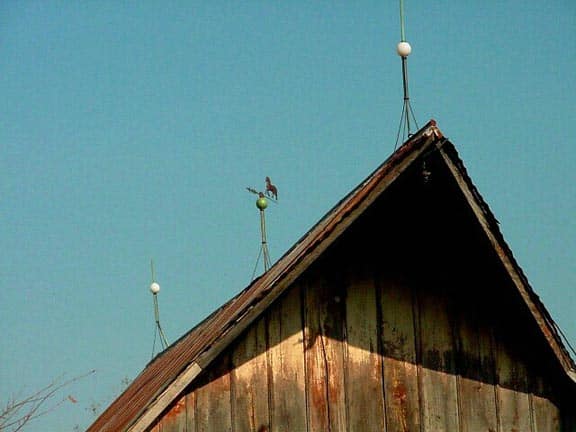
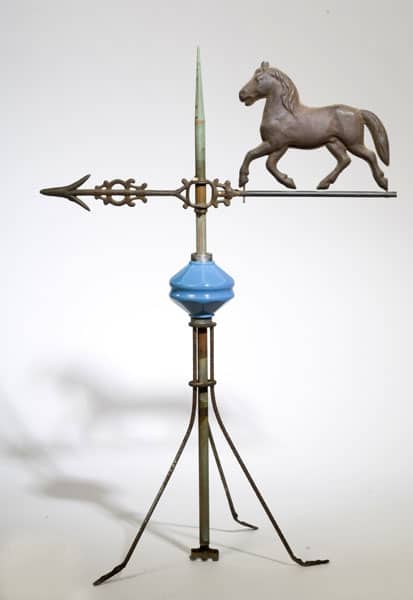
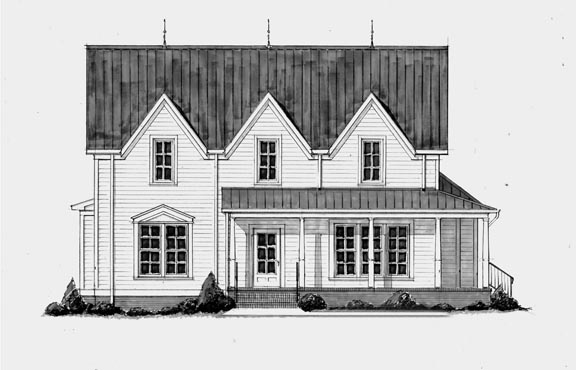
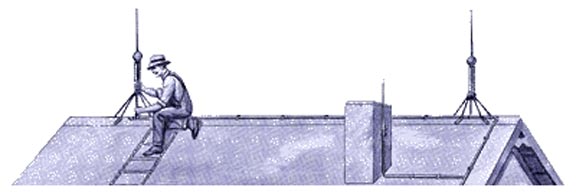
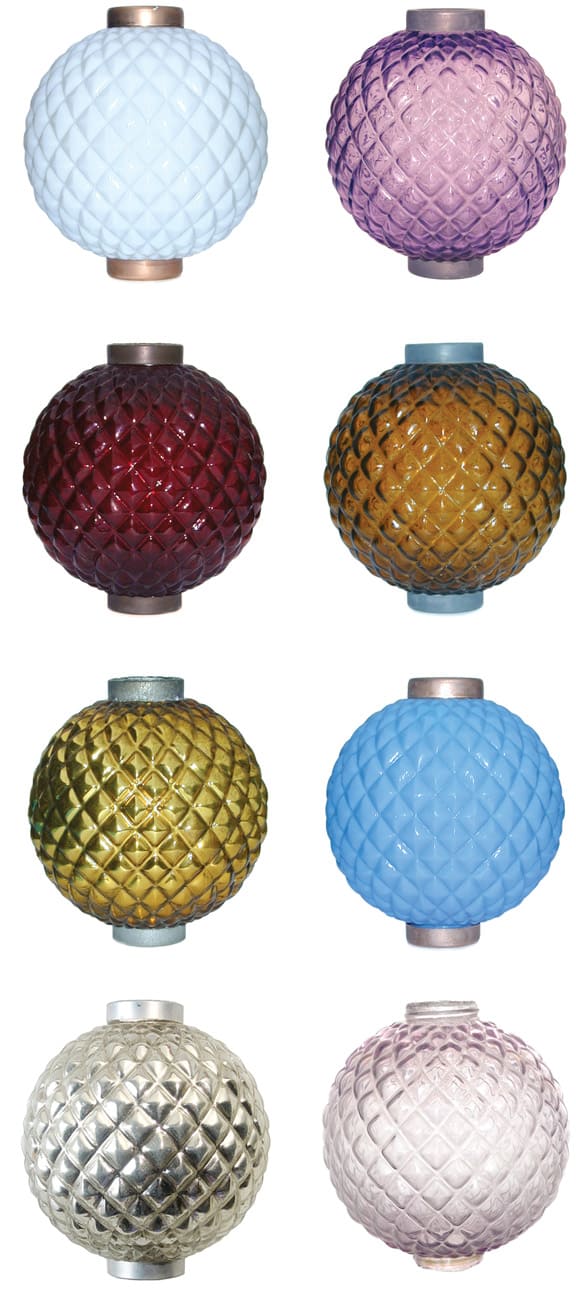
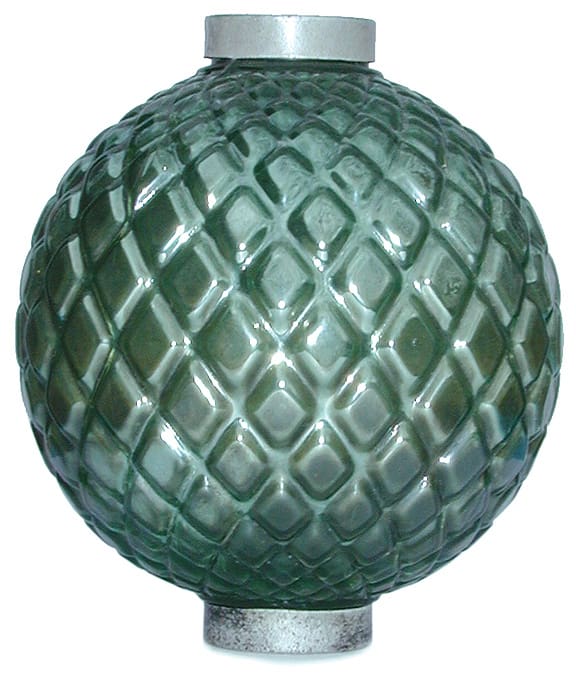
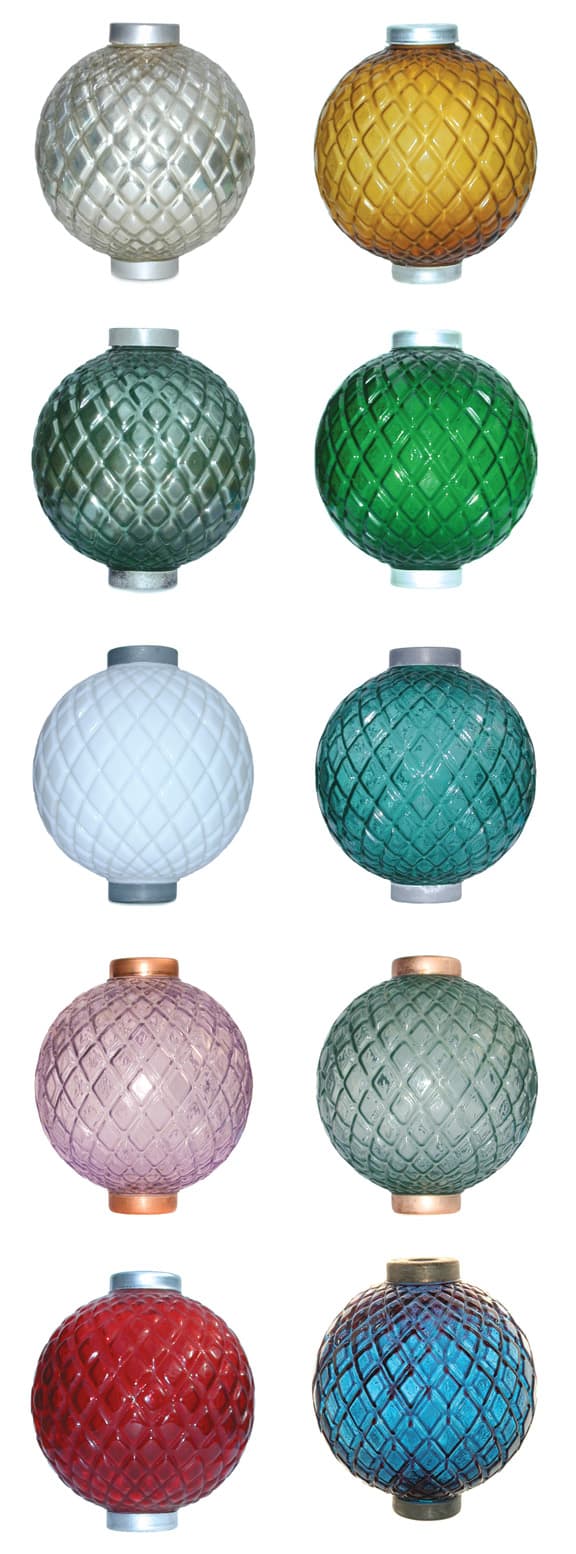
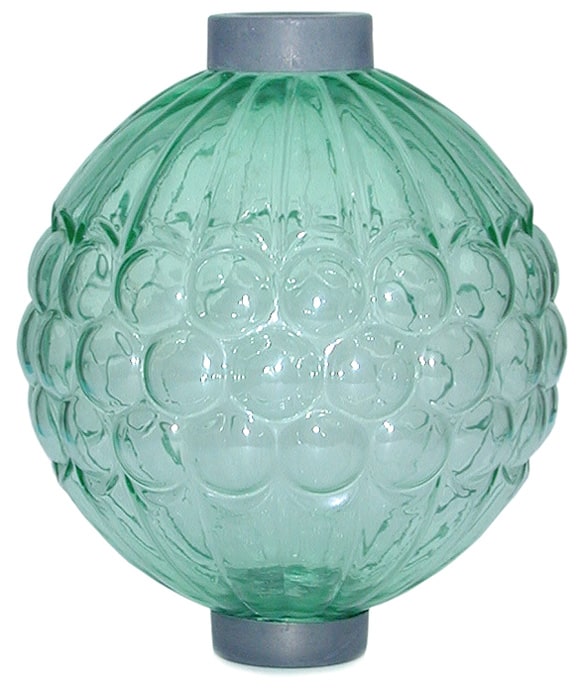
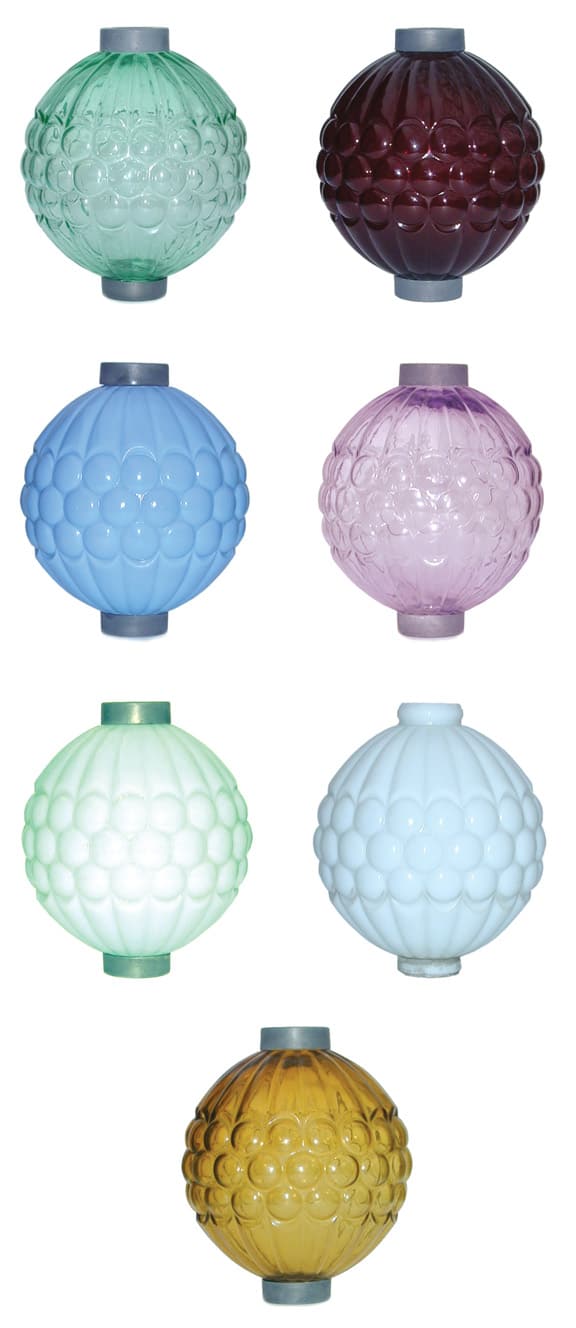
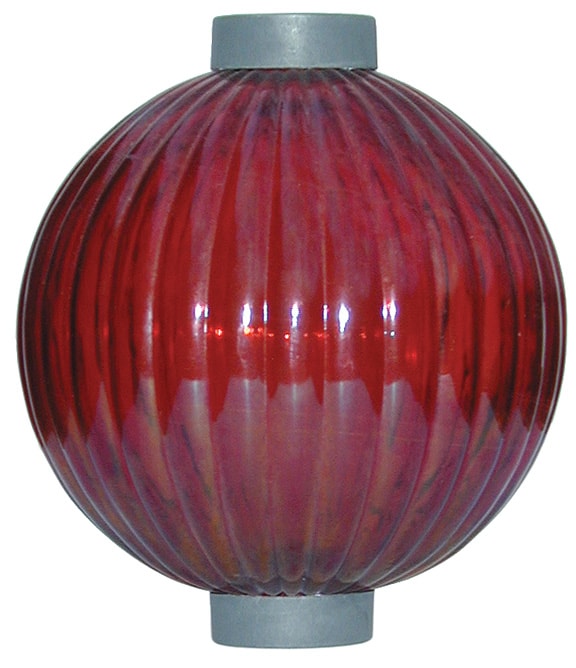
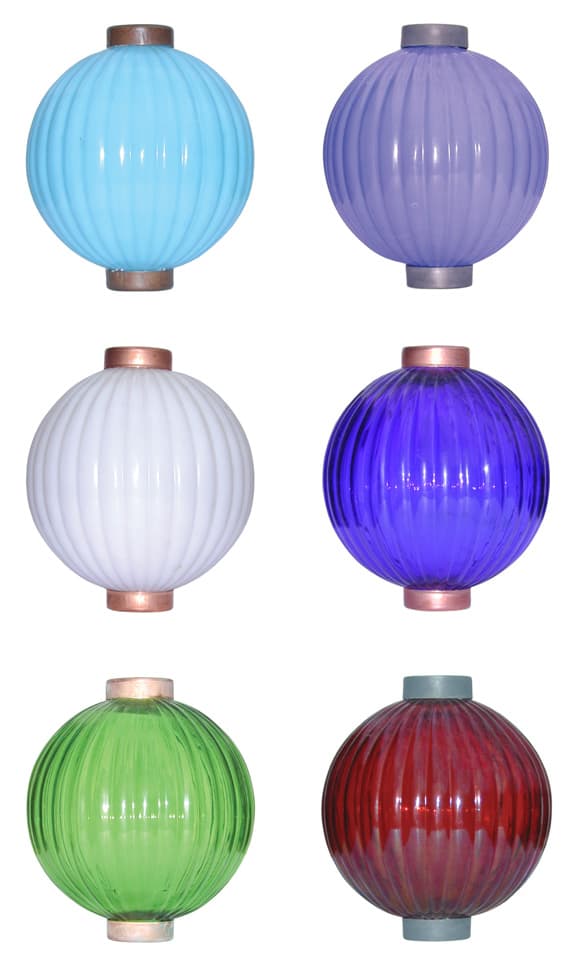
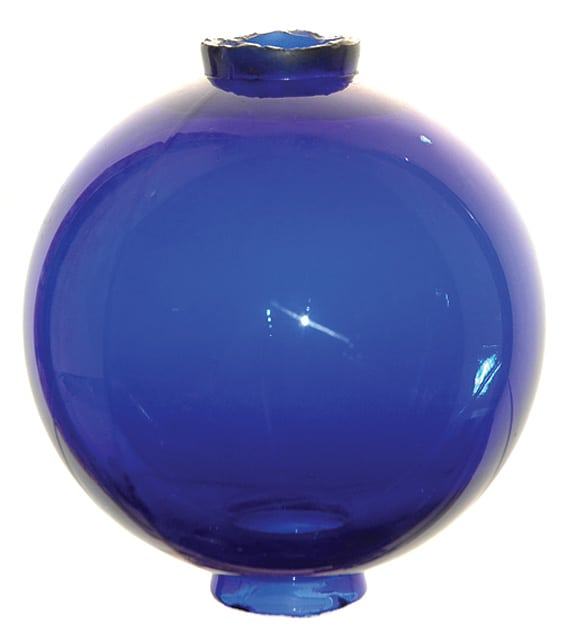
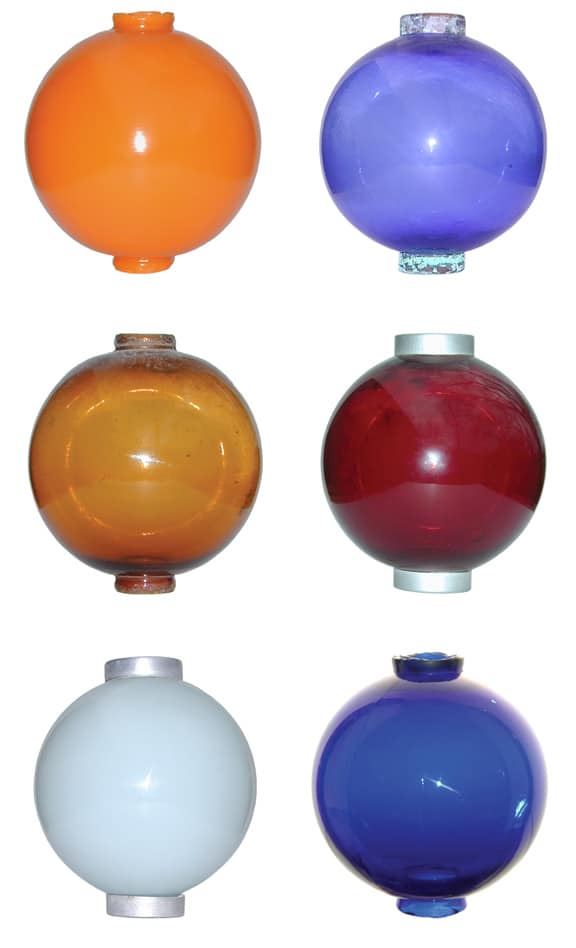
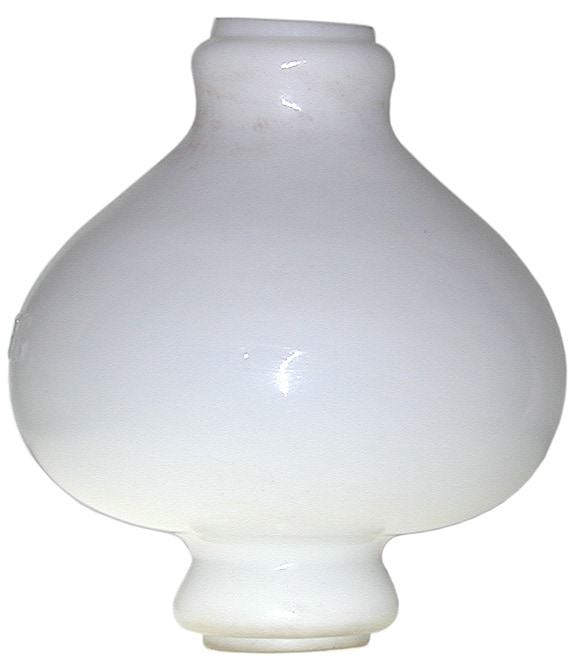
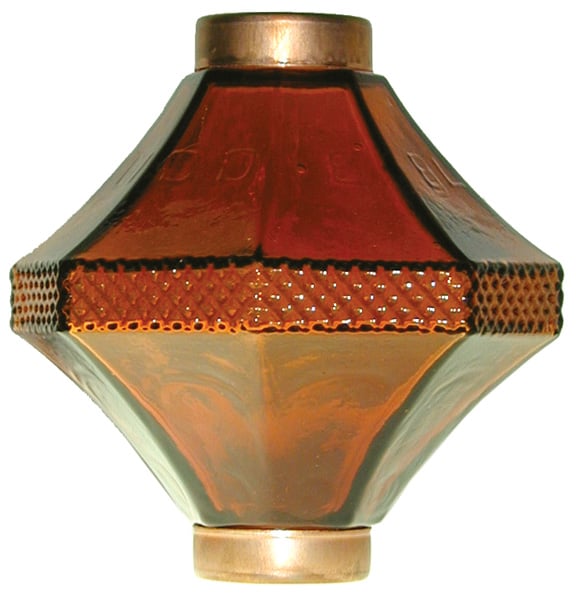
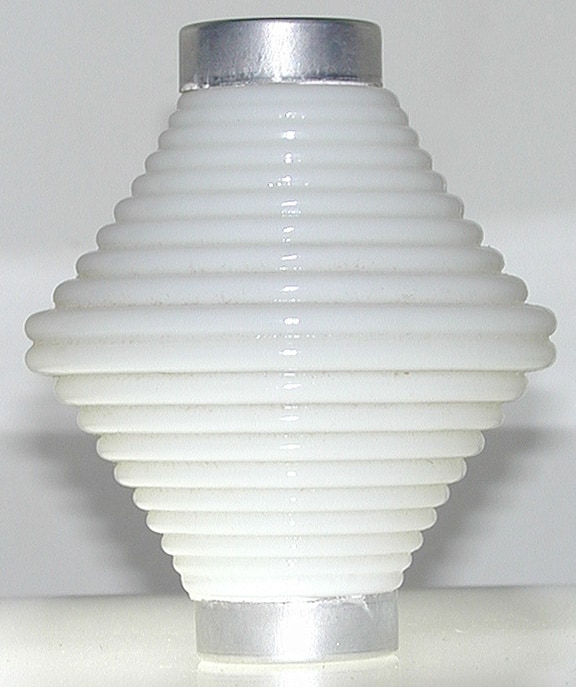
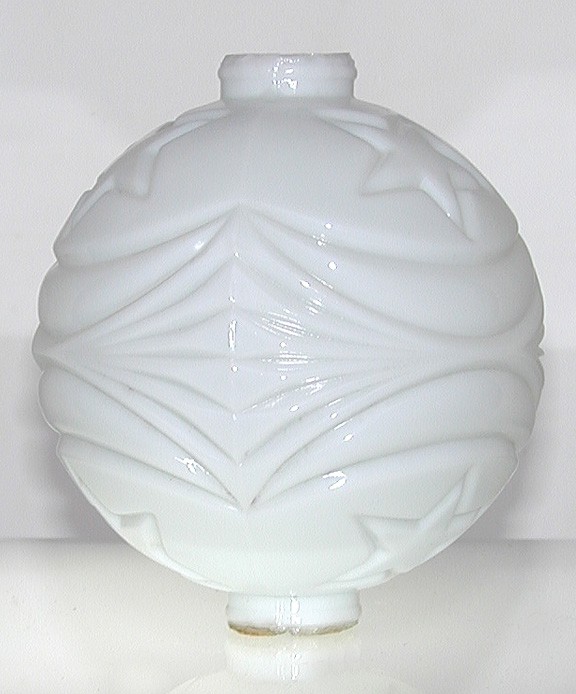
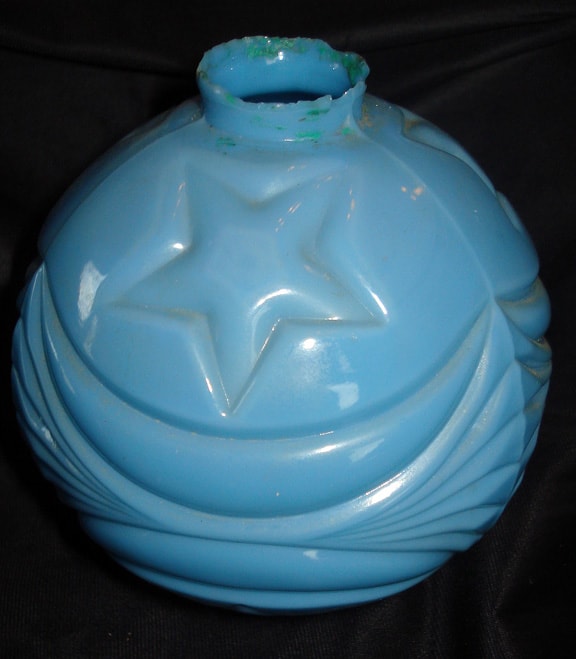
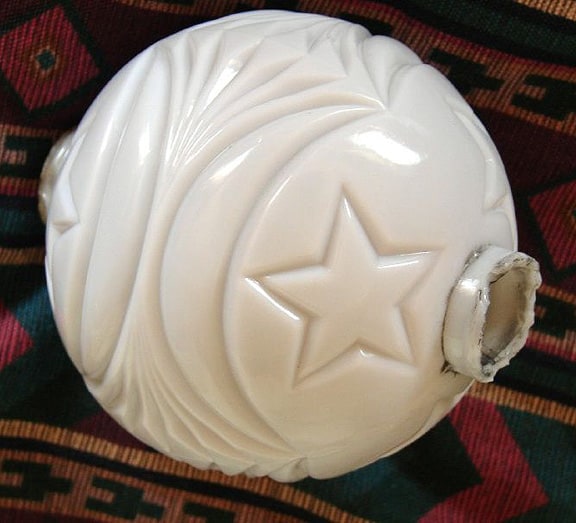
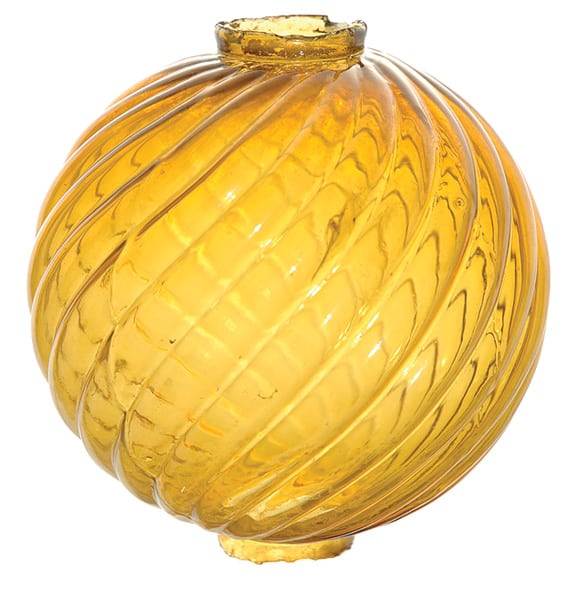


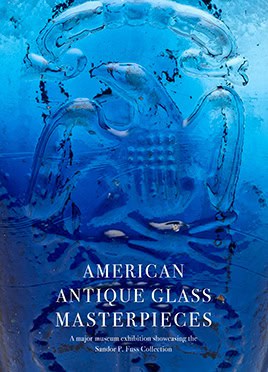
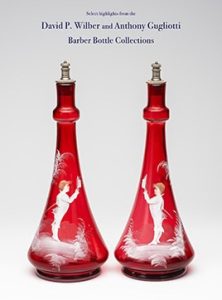


Nice! Glad you are sharing what is an under-collected, under-appreciated piece of rural Americana… AND American glass! As most were sold & installed in the upper Midwest, few are seen far West, Southwest, South, South-East and even Northeast.
Virtually the ONLY show catering to lightning rod balls, weathervanes, etc. is coming up on Sat. April 14th in Yorkville, Illinois. Pull up Ebay Item number: 290693579509 for a show “handbill with info. This “Frog” will be set up there!
Back in the ’70s we rescued several dozen LRs from rural Kansas rooftops. One still sits atop our house. Just a plain copper rod with glass vane and ball.